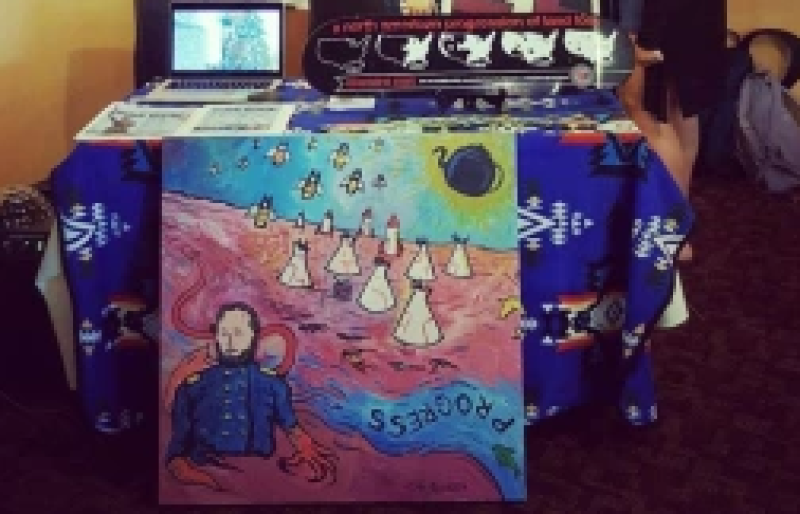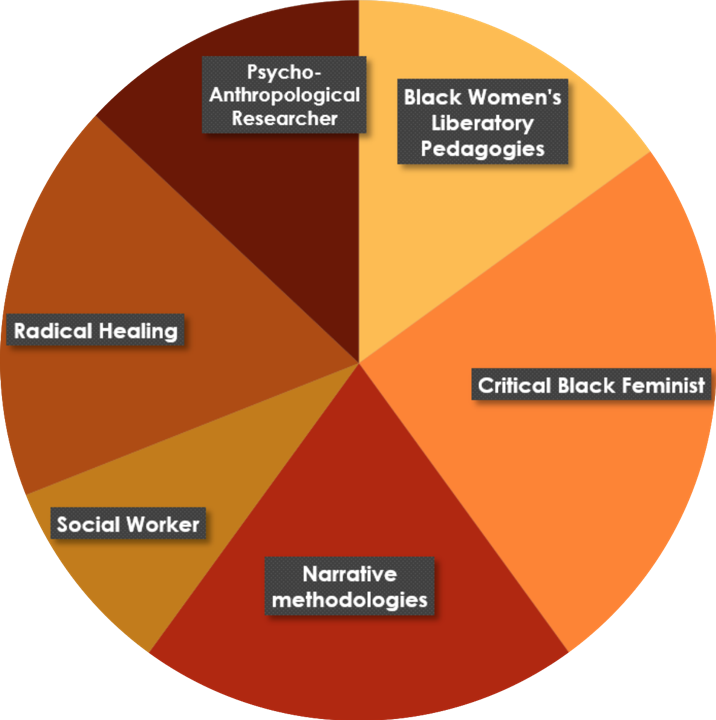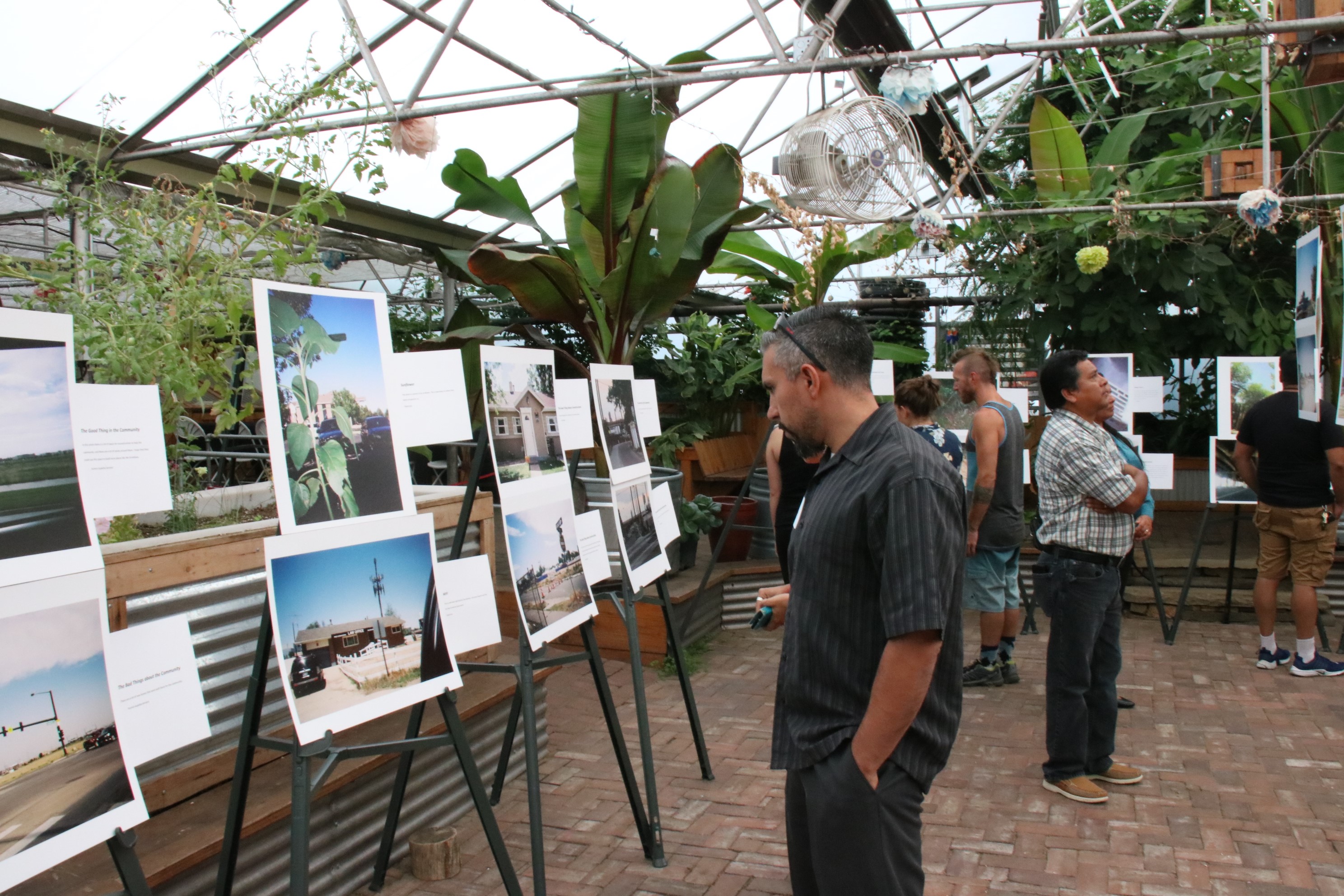Why Access to and Retention in Education Matters to Me
By: Grace Carson, Journalism and Political Science

In the fall of 2015, I walked onto the University of Denver’s (DU) campus as a student for the first time. I remember walking into my undergraduate freshmen resident hall with my arms full of some of my favorite books from home, watching everyone around me move into their rooms while joking and laughing with their families. Excitement was felt by everybody in the building, including myself, but I also felt a deep sense of pride — a feeling that resembled what I felt when I got accepted into colleges and when I graduated high school, but was different because it was coupled with feeling like I had finally “made it.”

Photo of my grandmother and me at 11-years-old after a performance I was in.
From a young age — as young as when I was in Kindergarten — I remember having aspirations to go to college. My grandmother would say to me as she braided my hair before going out to play, “You’re too smart not to go to college and make something of yourself. You’re not going to make the same mistakes I did. You’re going to make it.” My mother would give me pep talks as she drove me to school, reminding me that I was just as smart as the other kids in my grade, and if I worked hard enough, I could do anything. By the age of nine-years-old, I had chosen a major, school, and career path — though, my goals strayed far from going to Oklahoma State University (OSU) and practicing veterinary medicine like I had planned back then. I remember that my grandmother would brag to everyone she met, “My girl is going to college to be a veterinarian someday.”
This isn’t an uncommon story for first-generation college students. In fact, studies show that a large percentage of first-generation students go to college with consideration of their families. One study found that 69 percent of first-generation college students say they want to help their families, compared to 39 percent of students whose parents have earned a degree. My own desire to attend higher education was only increased when I thought of my six younger siblings who I would be paving a way for, and how, as a Native woman, I would be a beacon of hope to a community whose representation in higher education is minimal, as only one percent of Native students comprised the U.S. undergraduate population. And when I found myself struggling to find motivation to get through college, I remembered graduation and the fact that, if I made it to graduation, I’d be a part of the ten percent of the Indigenous community who has obtained a bachelor’s degree.
So, I worked hard to succeed in school. In high school, I worked 35 hours a week to support myself and family while maintaining an A average in honors classes and participating in extracurricular and volunteer opportunities. It wasn’t easy, but I had always been told that if I worked hard, I could reach my goals.

Photo of my family and me taken before my high school graduation ceremony.
But accessing higher education was still a barrier for me. I got little sleep trying to balance everything I needed to be a competitive applicant for college. As a first-generation student, I also had no idea how to make my application competitive or how to write a convincing application essay. My identities led to discouraging comments from my guidance counselor, and I had little support in the application process, as well as the financial aid process. I essentially figured out how to apply to college by myself, but I got there, anyway.
Access to higher education was a barrier for me, so when I finally arrived at my college that morning in Fall, I thought, “This is it. This is what I worked for. I’m finally here.” I hadn’t even considered the ways college may be difficult for me as a low-income, first-generation, Indigenous student.
Not too long afterwards, I realized I still had a long way to go. During my first quarter at DU, I didn’t just struggle to keep up with my school work, but I felt isolated because there were few people I could relate to. DU is a predominately white and wealthy institution, and for someone who doesn’t exactly fit that narrative, it can be hard to find that community. I was also struggling to pay the remainder of my tuition, and as a first-generation student, I wasn’t sure where to look for resources. I worked 2-3 jobs at a time, and often had friends who could not quite understand when I couldn’t go out to eat with them or participate in school traditions, such as DU’s Winter Carnival where students rent a cabin in Keystone and ski, because I couldn’t afford it.
As a result, I felt disconnected from the DU community, and my mental health took a toll. I didn’t know who to reach out to, and I didn’t want to reach out to my family because I didn’t want to let them down or make them worry. My first year, I considered transferring, and even dropping out.

Photo of me with NSA members during my sophomore year of college representing Native culture at DU’s Culture Fest.
Luckily for me, I decided to stay at DU for at least another year, and things got better. I found a solid community within Native Student Alliance (NSA), where there were students who had similar backgrounds as me and there was an outlet to participate in my culture, ceremonies, and traditions. I was able to find financial support through outside scholarships and by taking out loans, so there was less financial stress to have to pay a quarterly tuition out-of-pocket. And I found mentorship at the university that helped me to learn how to navigate higher education. These factors and more helped me to decide to stay at DU to finish my degree.
Unfortunately, while my story mirrors that of many students the same identities as me, not all students find the same opportunities that I did. Not all students, no matter how hard they work or study, are able to access higher education, and not all students are able to stay at their institution despite financial hardships, feelings of isolation, lack of mentorship, and more. That’s why programs addressing access to and retention in education are so essential for higher education institutions, and why the topic is important to me.
Grace Carson is a fourth-year undergraduate student majoring in journalism and political science, with an English minor. She is a 2018-2019 Community-Engaged Fellow, and her issue area is Access & Education. As well as being a Community-Engaged Fellow, she participates in various activities such as serving on the executive board for the Native Student Alliance, being the Executive Editor for the Clarion, being a research assistant, and more. Beyond her roles at DU, she is passionate about social and racial justice, writing, and serving her community. Next fall, she plans on attending UCLA School of Law in both the David J. Epstein Program in Public Interest Law and Policy and the Critical Race Studies program. To contact her or learn more, visit her portfolio here.


